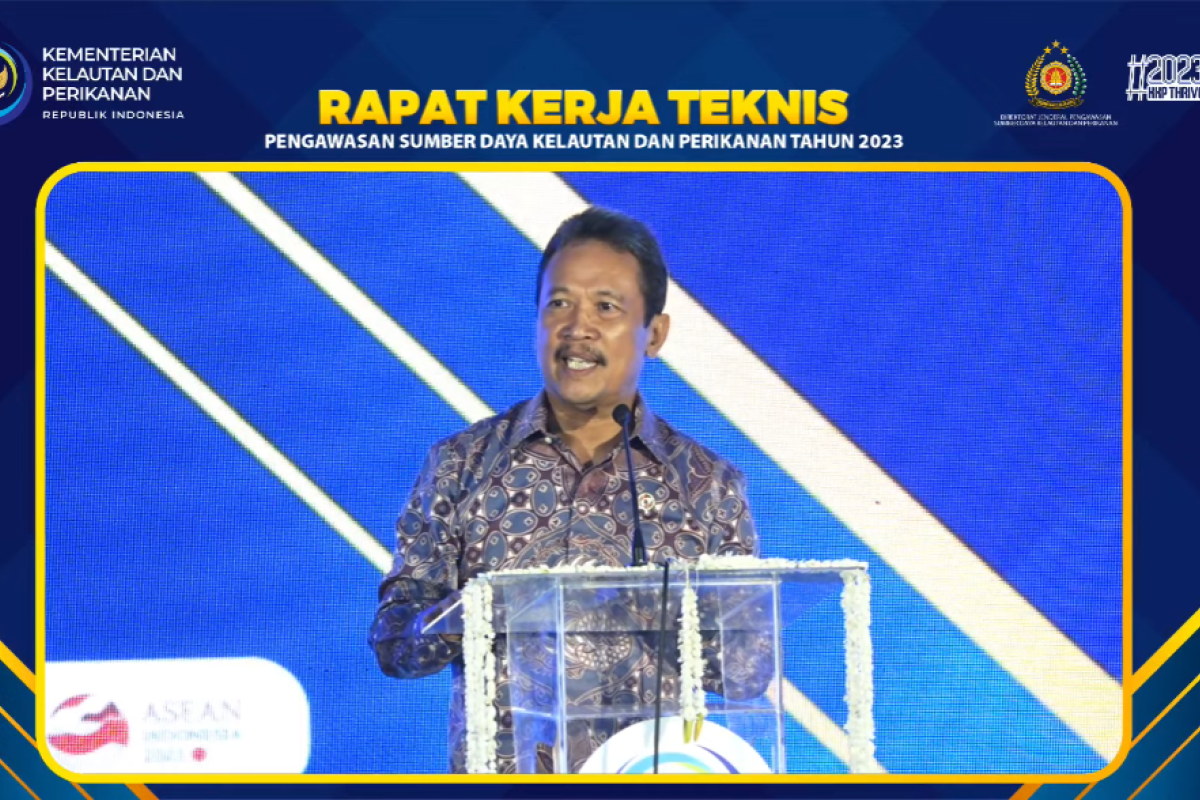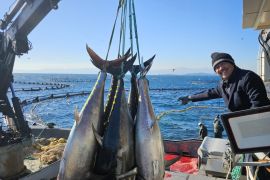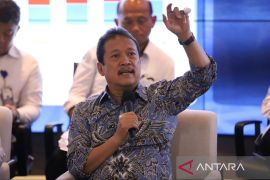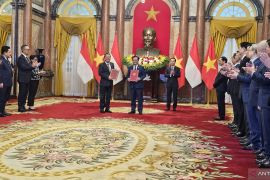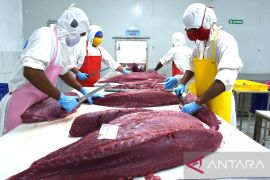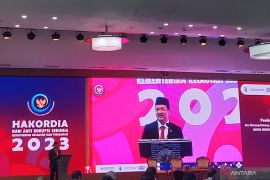These must become long-term policiesJakarta (ANTARA) - Maritime Affairs and Fisheries Minister Sakti Wahyu Trenggono on Tuesday emphasized that the five blue economy policies promoted by his ministry be made a part of long-term policies to provide the greatest benefit to the people.
"I hope that these five blue economy policies would be implemented even after my leadership is over. These must become long-term policies," he said at a “Technical Work Meeting on Oversight of Human Resources in Maritime Affairs and Fisheries 2023” in Jakarta on Tuesday.
The five blue economy policies are increasing the extent of marine conservation areas; implementing quota-based measured fishing; developing sustainable marine, coastal, and inland aquaculture; managing and supervising coastal areas and small islands; and managing plastic waste in the sea through the fishermen's participation movement, he expounded.
According to Trenggono, the policies will encourage the maintenance of the marine and fisheries core zone. They will also encourage the use of advanced technologies to maintain national maritime sovereignty.
"In the near future, we will have ten additional modern ships with modern technology. In addition, we also plan to launch a nano-satellite to cover our underwater," he added.
The minister said that protecting marine ecosystems poses massive reclamation challenges in the face of tourism and property or housing interests.
"Those will definitely damage our marine ecology," he pointed out.
The aquaculture sector also needs extra attention since its practices, which are still traditional, are very damaging to the environment, the minister said.
"We must pay attention to issues in the aquaculture sector because this is very damaging to our environment. There are 247,803 hectares of aquaculture throughout Indonesia with traditional methods that bring damage to the environment. We must manage this," he added.
He further said that cultivation development in Indonesia must be supervised to enable certification. He expressed the hope that the effort will encourage Indonesia to become a leading country in sea agricultural commodities in the next 20 years.
"We have five priority sea commodities, such as shrimp, lobster, crabs, seaweed, and tilapia," he noted.
He informed that the market value of tilapia has reached US$13.9 billion, thus Indonesia has the potential to develop the commodity.
Regarding the supervision and management of small islands, he asked experts at the Maritime and Fisheries Human Resources Development Agency to work together with the Directorate General of Marine Spatial Management to ensure the ecological function of small islands as an economic power.
He also asked that the movement to clean up trash in the sea be intensified in order to maintain the health of the sea in the future.
Related news: Indonesia pushes optimizing blue economy as ASEAN's new growth driver
Related news: Indonesia invites ASEAN nations to overcome maritime challenges
Related news: Navy holds 22nd NIOHC meeting to discuss blue economy
Translator: Ade Irma J, Resinta S
Editor: Sri Haryati
Copyright © ANTARA 2023
